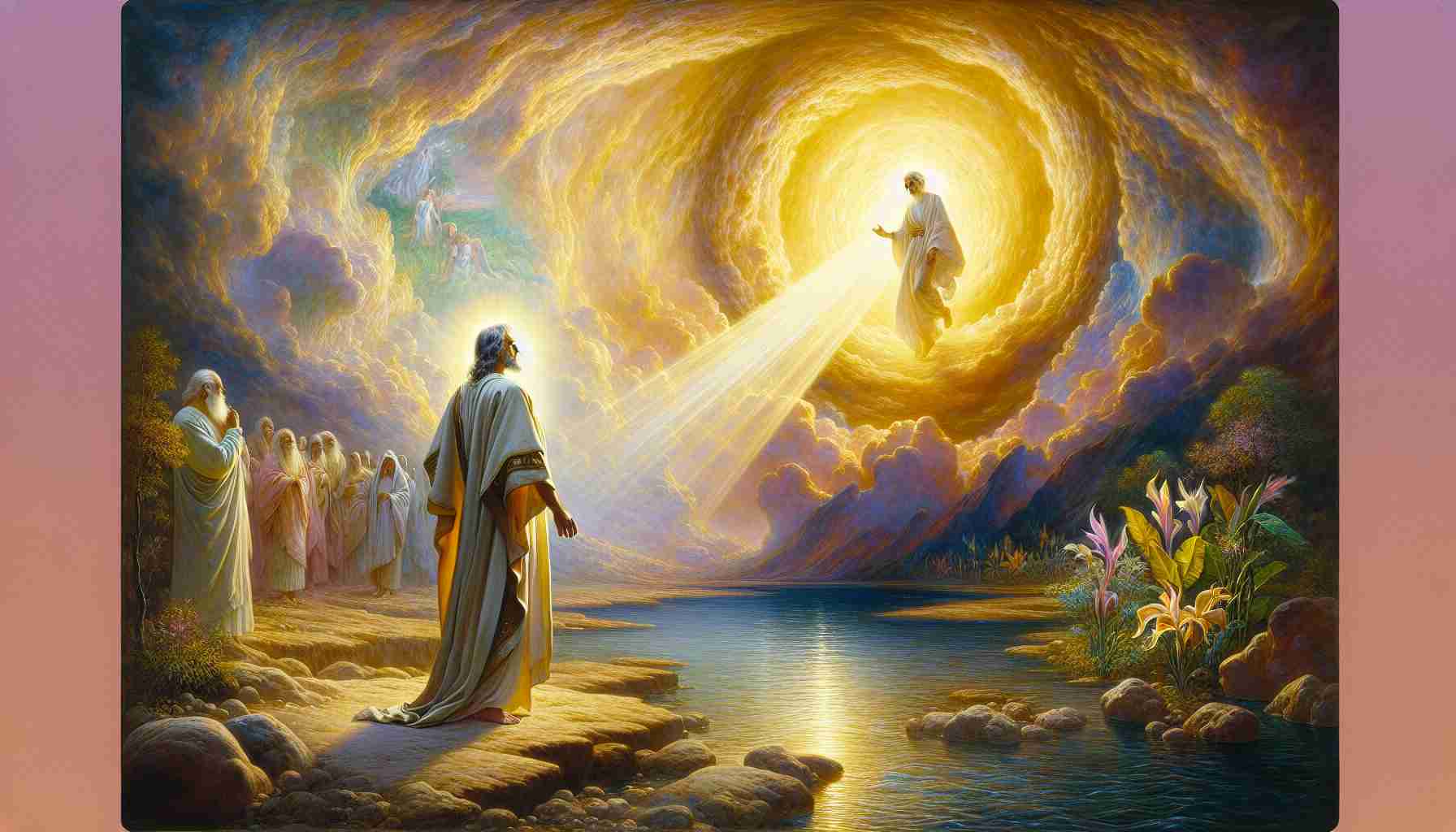

We were not supposed to speak of the darkness. Not anymore, now that we lived beneath the warmth of the sun. But I remember the blackness.
My name is Oriah—I was the youngest scribe in our village when the elders first taught me the beginning of all things. My teacher was Tzofnat, an old man with a whispery voice and eyes that had seen many sorrows. He had once copied the very first verses of Bereishit—the book of Genesis—with ink he’d prepared by hand and parchment rolled tighter than a scroll in winter.
“The world did not begin with hands,” he told me once, as we sat beneath a fig tree. “It began with a word.”
It was a strange thought. I imagined worlds built by chisels or hammers, not words. But in the holy scripture, it said: Vayomer Elohim, Yehi or—“And God said, ‘Let there be light.’” And just like that, there was light. Like breath into silence. Like bravery rising in a frightened heart.
Still, I didn’t truly understand what it meant until the night my faith was tested.
It was late autumn, and enemies from the north had crept close to our region in Israel. Our town was small, barely a mark on their map. But fear has a way of making everything feel big. People whispered about fleeing to the hills. But Tzofnat stayed.
“We are keepers of the covenant,” he said quietly. “To abandon scripture is to abandon who we are.”
So I stayed too.
That evening, the sky turned thick—clouds heavy with darkness not even the moon could pierce. I sat inside the study hall, clutching a scroll too tightly. The words of Bereishit blurred on the parchment. My hands shook, though I tried to hide it.
Then I heard it—Tzofnat’s voice, calm and steady, reciting: “Yehi or.”
He stood in the doorway, facing the night. No sword. No shield. Just the verse.
“Do you believe,” he asked, “that God still speaks?”
His question struck something in me. I wanted to say yes. I needed to say yes.
“I do,” I whispered.
“Then say it. Let the darkness hear it.”
I was only a scribe, not a prophet or soldier. But I stepped beside him, looked out into the night, and called, “Yehi or. Let there be light.”
And something changed. It wasn’t lightning. It wasn’t fire. But the clouds parted, and a beam of moonlight spread across the hills. There were no enemies that night—just trees, rocks, and fear losing its grip.
After that, I understood why our Torah begins with Bereishit.
It’s not only the story of the world being made. It’s the reminder that even when everything feels lost, even when all we see is darkness—God can still speak.
And when He does, light returns.
We were not supposed to speak of the darkness. Not anymore, now that we lived beneath the warmth of the sun. But I remember the blackness.
My name is Oriah—I was the youngest scribe in our village when the elders first taught me the beginning of all things. My teacher was Tzofnat, an old man with a whispery voice and eyes that had seen many sorrows. He had once copied the very first verses of Bereishit—the book of Genesis—with ink he’d prepared by hand and parchment rolled tighter than a scroll in winter.
“The world did not begin with hands,” he told me once, as we sat beneath a fig tree. “It began with a word.”
It was a strange thought. I imagined worlds built by chisels or hammers, not words. But in the holy scripture, it said: Vayomer Elohim, Yehi or—“And God said, ‘Let there be light.’” And just like that, there was light. Like breath into silence. Like bravery rising in a frightened heart.
Still, I didn’t truly understand what it meant until the night my faith was tested.
It was late autumn, and enemies from the north had crept close to our region in Israel. Our town was small, barely a mark on their map. But fear has a way of making everything feel big. People whispered about fleeing to the hills. But Tzofnat stayed.
“We are keepers of the covenant,” he said quietly. “To abandon scripture is to abandon who we are.”
So I stayed too.
That evening, the sky turned thick—clouds heavy with darkness not even the moon could pierce. I sat inside the study hall, clutching a scroll too tightly. The words of Bereishit blurred on the parchment. My hands shook, though I tried to hide it.
Then I heard it—Tzofnat’s voice, calm and steady, reciting: “Yehi or.”
He stood in the doorway, facing the night. No sword. No shield. Just the verse.
“Do you believe,” he asked, “that God still speaks?”
His question struck something in me. I wanted to say yes. I needed to say yes.
“I do,” I whispered.
“Then say it. Let the darkness hear it.”
I was only a scribe, not a prophet or soldier. But I stepped beside him, looked out into the night, and called, “Yehi or. Let there be light.”
And something changed. It wasn’t lightning. It wasn’t fire. But the clouds parted, and a beam of moonlight spread across the hills. There were no enemies that night—just trees, rocks, and fear losing its grip.
After that, I understood why our Torah begins with Bereishit.
It’s not only the story of the world being made. It’s the reminder that even when everything feels lost, even when all we see is darkness—God can still speak.
And when He does, light returns.